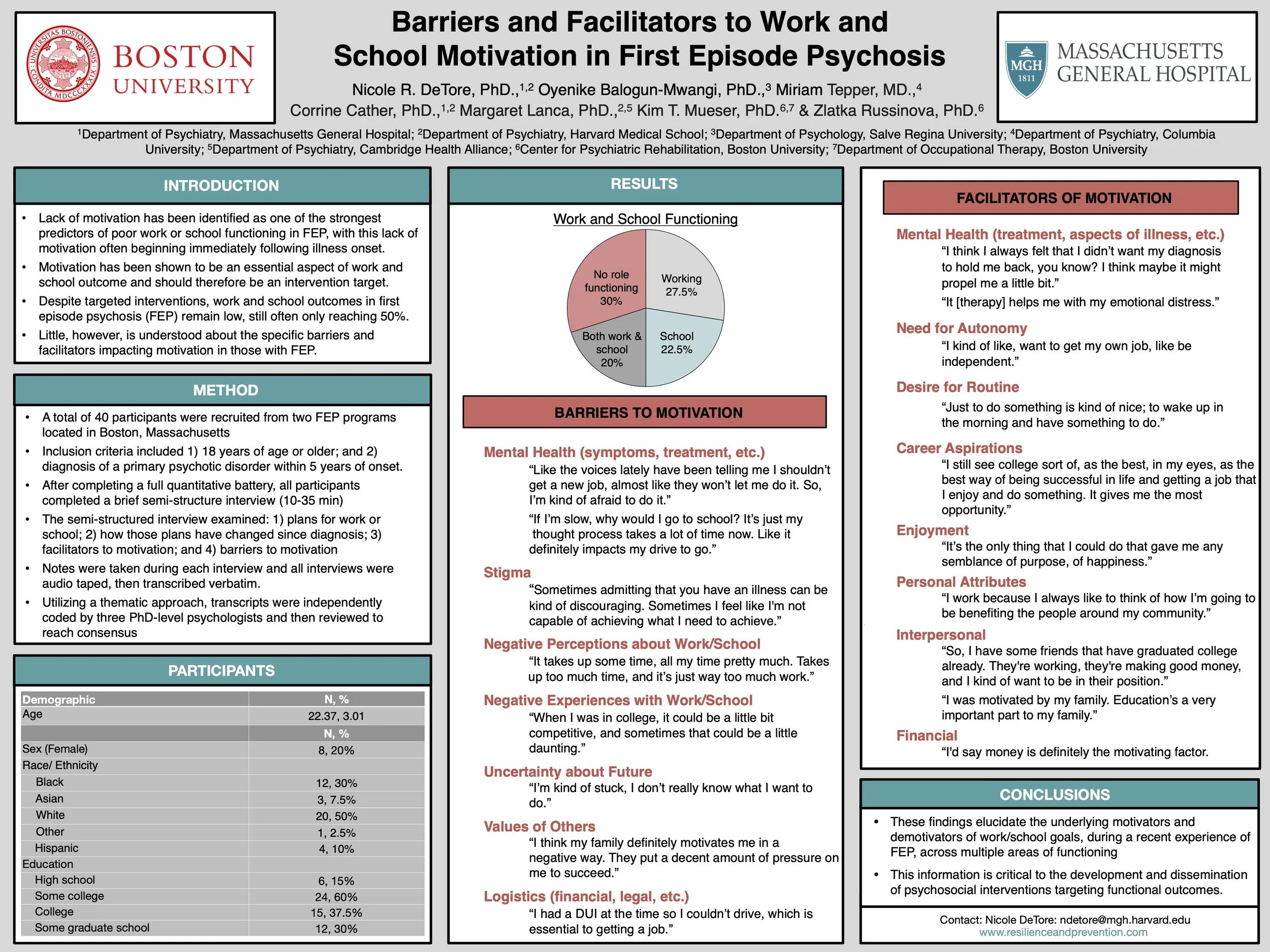Barriers and Facilitators to Work and School Motivation in First Episode Psychosis
Nicole R. DeTore, PhD. (1,2) Oyenike Balogun-Mwangi, PhD. (3) Miriam Tepper, MD. (4)
Corrine Cather, PhD. (1,2) Margaret Lanca, PhD. (2,5) Kim T. Mueser, PhD. (6,7) & Zlatka Russinova, PhD (6)
1. Department of Psychiatry, Massachusetts General Hospital
2. Department of Psychiatry, Harvard Medical School
3. Department of Psychology, Salve Regina University
4. Department of Psychiatry, Columbia University
5. Department of Psychiatry, Cambridge Health Alliance
6. Center for Psychiatric Rehabilitation, Boston University
7. Department of Occupational Therapy, Boston University
Abstract
Background: Despite targeted interventions, work and school outcomes in first episode psychosis (FEP) remain low, still often only reaching 50%. Amotivation has been identified as one of the strongest predictors of poor work or school functioning in FEP, with this lack of motivation often beginning immediately following illness onset. Motivation has been shown to be an essential aspect of work and school outcome and should therefore be an intervention target, though little is understood about the specific barriers and facilitators impacting motivation in those with FEP.
Method: A total of 40 participants were recruited from two FEP programs located in Boston, Massachusetts to complete a qualitative assessment. Inclusion criteria included 1) 18 years of age or older; and 2) diagnosis of a primary psychotic disorder within 5 years of onset. The qualitative interview utilized a guide consisting of open-ended questions covering: 1) plans for work or school; 2) how those plans have changed since diagnosis; 3) motivation enhancers; and 4) de-motivators. Notes were taken during each interview and all interviews were audio taped, then transcribed verbatim. Using a thematic analyzing approach, all transcripts were coded individually by three PhD level psychologists.
Results: Our findings revealed that participants were faced with several barriers that decreased their motivations for work and school including a) mental health symptoms; b) mental health treatment; c) awareness of functional limitations; and d) fear of relapse. Conversely, participants described several motivational facilitators for work and school: a) mental health symptoms; b) mental health treatment; and c) positive attitudes about mental health. Direct participant quotes accurately describe each domain.
Conclusion: These findings elucidate the underlying motivators and demotivators of those with FEP in concerns to returning to or continuing with work or school goals. This information is critical to the development and dissemination of interventions targeting functional outcome.

